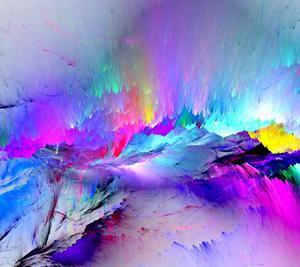12064331
Coastal Landscapes
Description
No tags specified
Quiz by Louise Elmslie, updated more than 1 year ago
More
Less

|
Created by Louise Elmslie
about 6 years ago
|
|
Resource summary
Question 1
Question
How do waves form?
Answer
-
Waves form by the wind blowing over the sea
-
Waves form due to the pull and stretch of the tides
-
Waves are formed due to the four processes of coastal erosion
-
Waves can be formed due to the gravitational pull of the earth on the water that changes over time as the earth spins
Question 2
Question
What is the fetch?
Answer
-
The length of a wave
-
The distance that the wind blows over
-
A characteristic of destructive waves
-
The distance of water that is pulled up the beach
Question 3
Question
A tsunami is caused by an underwater earthquake or volcanic eruption that shakes the seabed
Answer
- True
- False
Question 4
Question
What is the swash?
Answer
-
The foam on the surface of the wave
-
The water that flows back towards the beach
-
The water that rushes up the beach
Question 5
Question
What are the features of a constructive wave?
Answer
-
Low wave
-
Powerful backwash
-
Powerful swash
-
Wave crests close together
-
Carry and deposit large amounts of sand and pebbles
-
Formed by storms that are hundreds of kilometres away
Question 6
Question
What are the features of a destructive wave?
Answer
-
Waves spaced closely together
-
Gently sloping wave front
-
Powerful swash
-
Strong backwash
-
Forms a steep beach
-
Can destroy the beach by removing sediment
Question 7
Question
What causes cliffs to collapse?
Answer
-
Weathering
-
Overpopulation
-
Mass movement
-
The weather
-
A change in climate
Question 8
Question
Mechanical ([blank_start]Physical[blank_end]) weathering is the [blank_start]disintegration[blank_end] (break-up) of rocks. Where this happens, piles of rock fragments called [blank_start]scree[blank_end] can be found at the foot of cliffs.
Answer
-
Physical
-
Mass movement
-
Chemical
-
Collapsation
-
disintegration
-
movement
-
cracking
-
expansion
-
scree
-
fragments
-
residue
-
flakes
Question 9
Question
Chemical weathering- caused by [blank_start]chemical[blank_end] changes. [blank_start]Rainwater[blank_end], which as slightly [blank_start]acidic[blank_end], gradually dissolves certain types of rocks and [blank_start]minerals[blank_end].
Answer
-
chemical
-
physical
-
biological
-
climate
-
Rainwater
-
Seawater
-
Mud
-
acidic
-
alkaline
-
hot
-
hazardous
-
minerals
-
stones
-
pebbles
-
clay
Question 10
Question
[blank_start]Biological[blank_end] weathering- due to the actions of flora and [blank_start]fauna[blank_end]. Plant roots grow in cracks in the rocks, and animals such as [blank_start]rabbits[blank_end] burrow into weak rocks like sands.
Answer
-
Biological
-
fauna
-
rabbits
Want to create your own Quizzes for free with GoConqr? Learn more.
